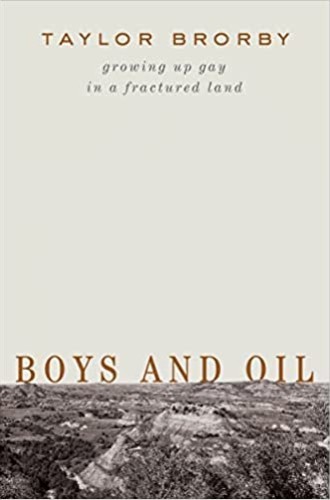A queer boy in North Dakota
Taylor Brorby’s coming-of-age memoir is a work of defiance. But it is not a tragedy.
When something is taken from its place, there is a void that must be filled; there is a reckoning in realignment. This is true with everything from fossil fuels that are extracted from the prairie to a young boy, gay and artistic, who is uprooted in search of understanding and community. Essayist and environmentalist Taylor Brorby explores both in this bold and sometimes blunt coming-of-age memoir.
Brorby struggled to find his place in the wide open spaces of North Dakota and to reconcile the wildly disparate notions of family, community, intellect, spirit, land, and self that bolster and burden him. Throughout the book he navigates the paradox, challenge, and tension of coming out, parental rejection, finding his voice, and seeking some semblance of balance (if not normality) as an openly gay man. It is not until the end, as his environmental activism is paired with his deep desire to return home and find some sense of balance, that something like resolution comes. There is almost hope—and that, perhaps, is the point.
Brorby’s prose is strong, and his book is at times devastating. The little queer boy twirling in an apron, buying and stashing away a Speedo, and codependently grappling with a male college friend—all this is presented almost without sympathy, and certainly without apology. Even when Brorby recounts suicidal ideation, it comes from a place of fact and resignation, not to garner the support of his audience. He is separated from his land, his place, and his people because he is different—not simply because he is queer, but because he is always an outsider who is queer.





